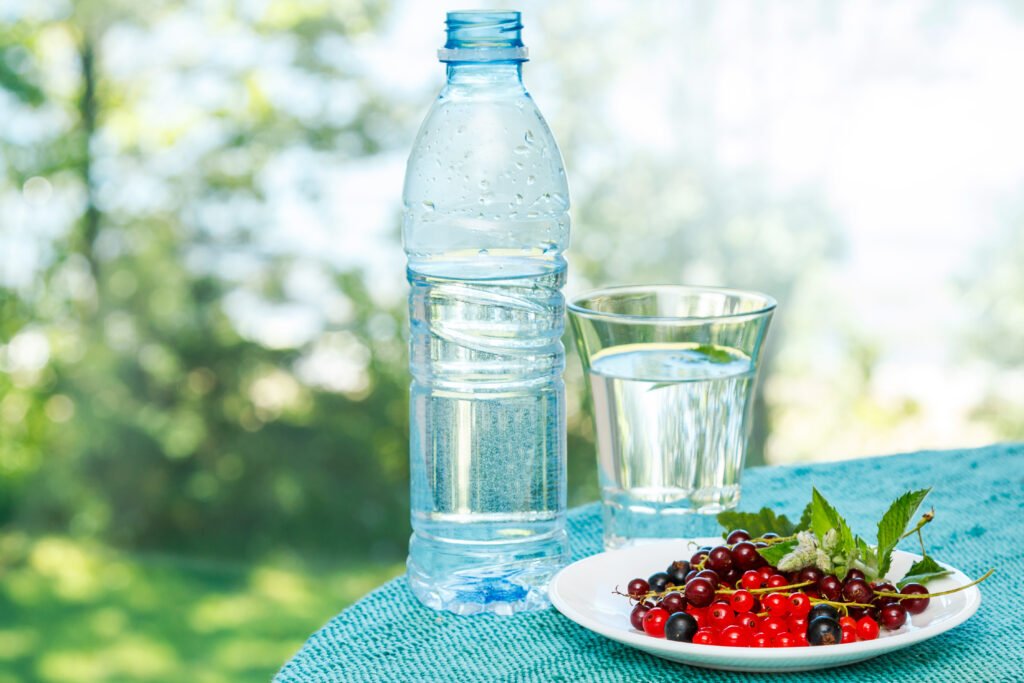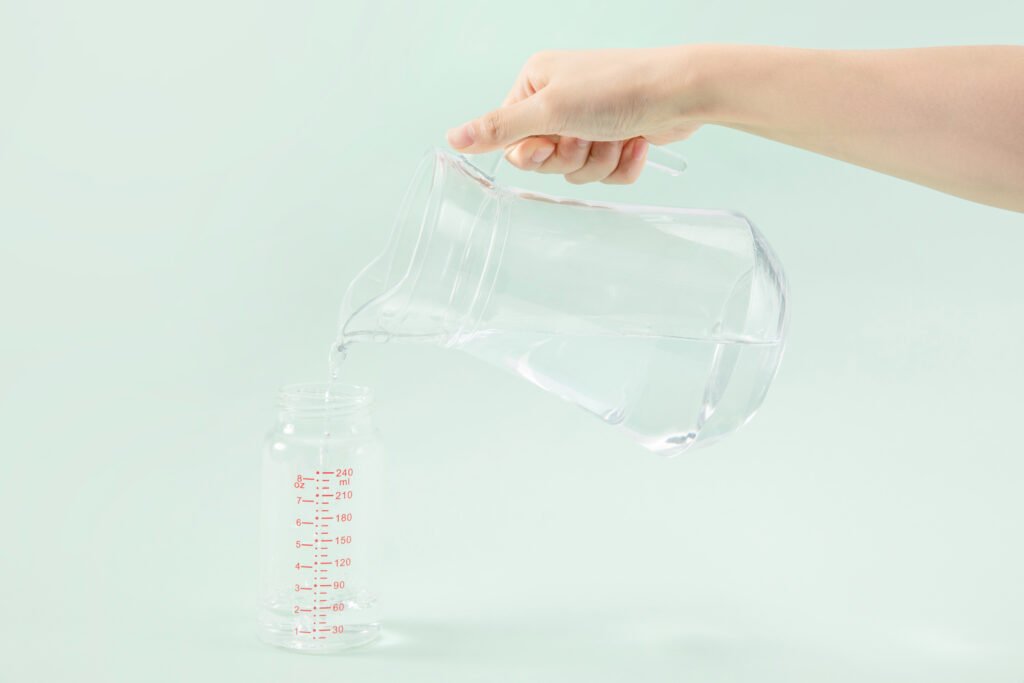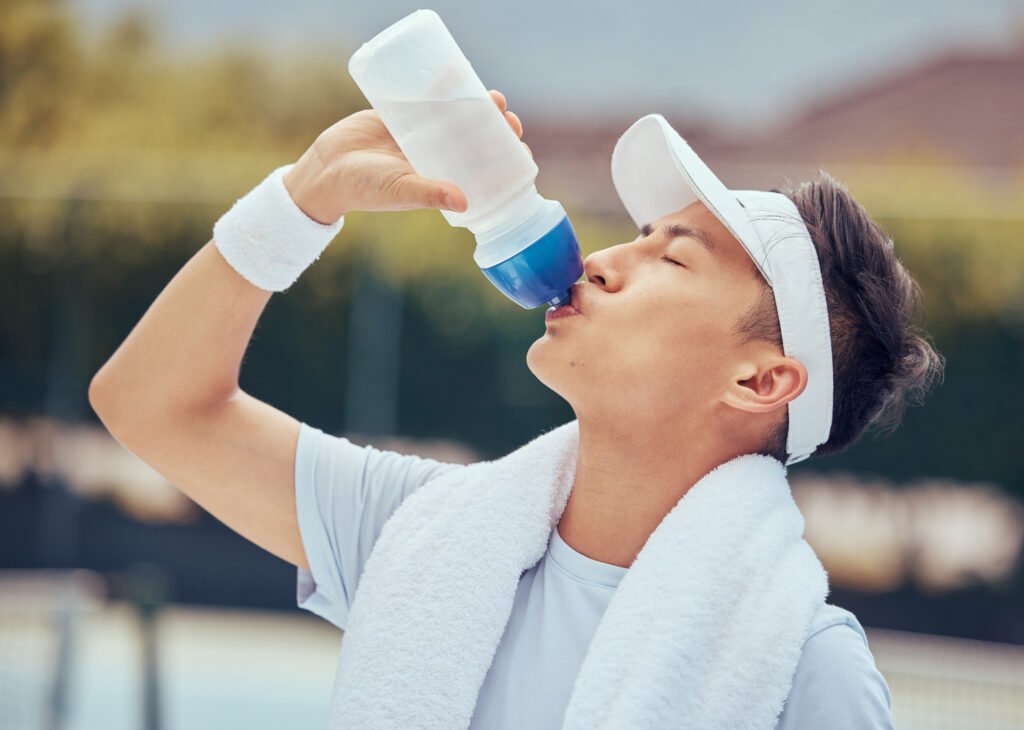Introduction
There’s no doubt that drinking water is one of the most essential health habits for maintaining both body and mind. Water is the foundation of life, making up 50-70% of the human body’s mass. While many may overlook the importance of drinking water regularly, staying hydrated is crucial for every biological process.
This article will provide a comprehensive overview of the importance of drinking water, focusing on its various benefits, daily water needs, and the negative impacts of dehydration. The goal is to increase awareness about the importance of water and make it a daily habit.
Table of Contents
Introduction
The Role of Water in the Body
Benefits of Drinking Water for Health
- Enhancing Vital Body Functions
- Boosting Physical Performance
- Supporting Skin Health
- Improving Digestion and Detoxification
- Enhancing Cognitive Functions
How Much Water Does the Body Need?
- Factors Affecting Water Needs
- How to Determine the Right Amount of Water
Signs of Dehydration and Effects of Not Drinking Enough Water
Tips for Staying Hydrated
Conclusion: The Importance of Water for a Balanced, Healthy Life
FAQs
1. The Role of Water in the Body
Drinking water is essential for maintaining good health. The human body consists of a large amount of water, around 50-70% depending on age, gender, and weight. Water plays a critical role in essential bodily functions.
For example, water acts as a natural transportation medium within the body, delivering nutrients to cells and helping eliminate waste through urine and sweat. Moreover, water helps regulate body temperature, preventing extreme heat spikes that can lead to serious health issues.

2. Importance of Drinking Water and Health Benefits
A. Enhancing Vital Body Functions
Water is fundamental to all bodily functions. Regular water intake supports the digestive, respiratory, and nervous systems. For example, water aids digestion by transforming food into nutrients that the body can absorb. It also supports blood circulation, facilitating oxygen transport to various tissues.
B. Boosting Physical Performance
If you exercise or engage in intense physical activity, staying hydrated becomes even more important. Water helps maintain hydration during workouts, preventing fatigue and enhancing endurance. It also regulates body temperature during physical activities, helping to prevent heat-related issues.

C. Supporting Skin Health
Water is the best friend of healthy skin. It naturally hydrates the skin, reducing wrinkles and fine lines. Proper hydration also improves blood flow to the skin, giving it a radiant glow and reducing acne and irritation.
D. Improving Digestion and Detoxification
Good digestion relies heavily on sufficient daily water intake. Water enhances bowel movements, reducing constipation and aiding in waste elimination. Additionally, water supports liver and kidney function, aiding in detoxification.
E. Enhancing Cognitive Functions
Drinking water not only benefits physical functions but also directly enhances mental and cognitive functions. Studies show that even mild dehydration can negatively impact focus, short-term memory, and energy levels.

3. How Much Water Does the Body Need?
A. Factors Affecting Water Needs
Daily water requirements vary depending on factors such as age, weight, physical activity level, and surrounding temperature. People living in hot climates or engaging in regular exercise may need more water.
B. How to Determine the Right Amount of Water
A common guideline is to drink eight glasses of water daily, but needs can vary. Listening to your body is the best way to gauge the right amount. Thirst signals a need for more water, and lighter urine color indicates good hydration.

4. Signs of Dehydration and Effects of Not Drinking Enough Water
Dehydration occurs when the body doesn’t get enough water. Symptoms range from mild to severe, including thirst, dry mouth, fatigue, and dizziness. Chronic dehydration can lead to serious issues like low blood pressure and kidney problems.

5. Tips for Staying Hydrated
To make drinking water a daily habit, here are some simple strategies:
- Carry a reusable water bottle as a reminder to drink.
- Set daily water goals and use a mobile app to track progress.
- Drink a glass of water before each meal.
- Eat water-rich fruits and vegetables like watermelon and cucumber.

6. Conclusion: Hydration for Better Health and Optimal Performance
In conclusion, water is not just a drink to quench thirst; it’s essential for maintaining body functions. Making drinking water a daily habit can significantly improve general health, physical performance, skin health, digestion, and even mental functions. Staying hydrated keeps the body balanced, supporting vital systems and promoting overall well-being.

7. FAQs
- What are the best times to drink water? anytime, but it’s good to start with a glass upon waking up, drink before meals to aid digestion, and hydrate before, during, and after workouts.
- How can I ensure I’m drinking enough water? Monitor urine color; lighter colors indicate better hydration. Use mobile apps to track daily water intake.
- Can I rely on other drinks instead of water? While other beverages like tea and juice contain water, pure water is the best choice as it’s calorie-free and additive-free.
- Can drinking too much water be harmful? Drinking too much water is rarely harmful, but in extreme cases, water intoxication can occur. This is a rare condition that happens when water intake exceeds the kidneys’ ability to excrete it. Such cases are very uncommon and usually happen when a person drinks excessive amounts of water in a very short time.
- What is the relationship between drinking water and weight loss? Drinking water can aid in weight loss by increasing satiety and reducing appetite. Additionally, drinking water before meals can help you consume less food.
Conclusion: Water as an Essential Element for Overall Health
In conclusion, drinking water is one of the simplest and most essential health habits one can adopt. With its numerous benefits—ranging from enhancing athletic performance to improving skin health and supporting digestive functions—the importance of staying hydrated cannot be overstated. Moreover, drinking water can also boost mental function and mood, making it a fundamental part of maintaining a healthy lifestyle. Make drinking water a daily habit and incorporate it into your routine. Whether you’re aiming to improve general health or enhance your performance at work or in sports, water is your best ally in achieving these goals.

